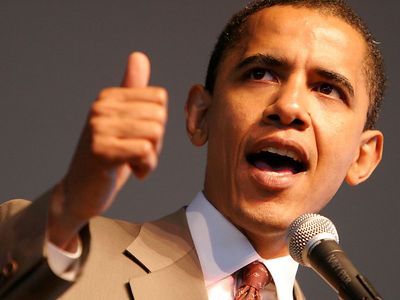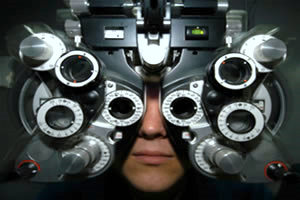Obama’s America
 Monday, November 3, 2008 at 08:26PM
Monday, November 3, 2008 at 08:26PM  The following piece consists of excerpts from the Democrat National Committee 2008 platform. It provides an accurate profile of what we can expect from President Barack Obama and his administration. You can access this platform online at many Democrat sites and verify this for yourself. His programs will sail through a congress that has a super-majority of Democrats, unimpeded by filibuster or extended debate.
The following piece consists of excerpts from the Democrat National Committee 2008 platform. It provides an accurate profile of what we can expect from President Barack Obama and his administration. You can access this platform online at many Democrat sites and verify this for yourself. His programs will sail through a congress that has a super-majority of Democrats, unimpeded by filibuster or extended debate.
A World without Nuclear Weapons.
America will seek a world with no nuclear weapons and take concrete actions to move in this direction. We face growing threats of terrorists acquiring nuclear weapons or the means to make them with more countries seeking nuclear weapons, unsecured nuclear materials in many countries, and of the potential spread of nuclear technologies. As George Shultz, Bill Perry, Henry Kissinger and Sam Nunn have warned, current measures are not adequate to address these dangers. We will maintain a strong and reliable deterrent as long as nuclear weapons exist, but America will be safer in a world that is reducing reliance on nuclear weapons and ultimately eliminates all of them. We will make the goal of eliminating nuclear weapons worldwide a central element of U.S. nuclear weapons policy.
Affordable, Quality Health Care Coverage for All Americans
If one thing came through in the platform hearings, it was that Democrats are united around a commitment that every American man, woman, and child be guaranteed affordable, comprehensive healthcare.
The American people understand that good health is the foundation of individual achievement and economic prosperity. Ensuring quality, affordable health care for every single American is essential to children’s education, workers’ productivity and businesses’ competitiveness. We believe that covering all is not just a moral imperative, but is necessary to making our health system workable and affordable. Doing so would end cost-shifting from the uninsured, promote prevention and wellness, stop insurance discrimination, help eliminate health care disparities, and achieve savings through competition, choice, innovation, and higher quality care. While there are different approaches within the Democratic Party about how best to achieve the commitment of covering every American, with everyone in and no one left out, we stand united to achieve this fundamental objective through the legislative process.
Ending the War in Iraq
To renew American leadership in the world, we must first bring the Iraq war to a responsible end. Our Soldiers, Sailors, Airmen and Marines have performed admirably while sacrificing immeasurably. Our civilian leaders have failed them. Iraq was a diversion from the fight against the terrorists who struck us on 9-11, and incompetent prosecution of the war by civilian leaders compounded the strategic blunder of choosing to wage it in the first place.
We will re-center American foreign policy by responsibly redeploying our combat forces from Iraq and refocusing them on urgent missions. We will give our military a new mission: ending this war and giving Iraq back to its people. We will be as careful getting out of Iraq as we were careless getting in. We can safely remove our combat brigades at the pace of one to two per month and expect to complete redeployment within 16 months.
After this redeployment, we will keep a residual force in Iraq to perform specific missions: targeting terrorists; protecting our embassy and civil personnel; and advising and supporting Iraq’s Security Forces, provided the Iraqis make political progress.
At the same time, we will provide generous assistance to Iraqi refugees and internally displaced persons. We will launch a comprehensive regional and international diplomatic surge to help broker a lasting political settlement in Iraq, which is the only path to a sustainable peace. We will make clear that we seek no permanent bases in Iraq. This is the future the American people want. This is the future that Iraqis want. This is what our common interests demand.
Global Warming
We will lead to defeat the epochal, man- made threat to the planet: climate change. Without dramatic changes, rising sea levels will flood coastal regions around the world, including much of the eastern seaboard. Warmer temperatures and declining rainfall will reduce crop yields, increasing conflict, famine, disease, and poverty. By 2050, famine could displace more than 250 million people worldwide. That means increased instability in some of the most volatile parts of the world.
Never again will we sit on the sidelines, or stand in the way of collective action to tackle this global challenge. Getting our own house in order is only a first step. We will invest in efficient and clean technologies at home while using our assistance policies and export promotions to help developing countries curb deforestation and leapfrog the carbon5 energy-intensive stage of development.
We will reach out to the leaders of the biggest carbon emitting nations and ask them to join a new Global Energy Forum that will lay the foundation for the next generation of climate protocols. China has replaced America as the world’s largest emitter of greenhouse gases. Clean energy development must be a central focus in our relationships with major countries in Europe and Asia. We need a global response to climate change that includes binding and enforceable commitments to reducing emissions, especially for those that pollute the most: the United States, China, India, the European Union, and Russia.
This challenge is massive, but rising to it will also bring new benefits to America. By 2050, global demand for low-carbon energy could create an annual market worth $500 billion. Meeting that demand would open new frontiers for American entrepreneurs and workers.
Choice
The Democratic Party strongly and unequivocally supports Roe v. Wade and a woman’s right to choose a safe and legal abortion, regardless of ability to pay, and we oppose any and all efforts to weaken or undermine that right.
The Democratic Party also strongly supports access to affordable family planning services and comprehensive age-appropriate sex education which empowers people to make informed choices and live healthy lives. We also recognize that such health care and education help reduce the number of unintended pregnancies and thereby also reduce the need for abortions.
The Democratic Party also strongly supports a woman’s decision to have a child by ensuring access to and availability of programs for pre- and post-natal health care, parenting skills, income support, and caring adoption programs.
Minority Rights and Same-Sex Marriage
We are committed to ensuring full equality for women: We reaffirm our support for the Equal Rights Amendment, recommit to enforcing Title IX, and will urge passage of the Convention on the Elimination of All Forms of Discrimination Against Women. We will pursue a unified foreign and domestic policy that promotes civil rights and human rights, for women and minorities, at home and abroad. We will pass the Local Law Enforcement Hate Crimes Prevention Act, because hate crimes desecrate sacred spaces and belittle all good people. We will restore and support the White House Initiative on Asian-American and Pacific Islanders, including enforcement on disaggregation of Census data. We will make the Census more culturally sensitive, including outreach and increased confidentiality protections to ensure accurate counting of the growing Latino population.
We will sign the U.N. Convention on the Rights of Persons with Disabilities and restore the original intent of the Americans with Disabilities Act. That is the America we believe in. It is not enough to look back in wonder of how far we have come; those who came before us did not strike a blow against injustice only so that we would allow injustice to fester in our time. That means removing the barriers of prejudice and misunderstanding that still exist in America. We support the full inclusion of all families in the life of our nation, and support equal responsibility, benefits, and protections. We will enact a comprehensive bipartisan employment non-discrimination act. We oppose the Defense of Marriage Act and all attempts to use this issue to divide us.
Choice of Judges
For our Judiciary, we will select and confirm judges who are men and women of unquestionable talent and character, who firmly respect the rule of law, and who listen to and are respectful of different points of view and who represent the diversity of America.
We support the appointment of judges who respect our system of checks and balances and the separation of power among the Executive Branch, Congress, and the Judiciary– and who understand that the Constitution protects not only the powerful, but also the disadvantaged and the powerless.
Our Constitution is not a nuisance. It is the foundation of our democracy. It makes freedom and self- governance possible, and helps to protect our security. The Democratic Party will restore our Constitution to its proper place in our government and return our Nation to our to our best traditions–including our commitment to government by law, and not by men.
So, what do different people and groups think of Obama’s America? Take a look.
Dem platform called ‘strongest ever’ on gay rights
Document calls for ‘sexual orientation,’ ‘gender identity’ protections
By LOU CHIBBARO JR, Washington Blade | Aug 11, 7:10 PM
A final draft of the Democratic Party’s 2008 platform strengthens the party’s support for gay civil rights and calls for an end to discrimination based on gender identity.
The document, which is to be presented to the Democratic National Convention in Denver later this month for final approval, also includes what party officials described as strongly worded language opposing the Defense of Marriage Act and “Don’t Ask, Don’t Tell,” which precludes openly gay people from serving in the military.
But the platform draft approved Aug. 9 by the party’s 186-member Platform Committee apparently omits any mention of the words “gay” or “lesbian,” which had been included in the Democrats’ 2004 platform.
The document, discussed by Democratic officials and gay activists during a conference call Monday with reporters, was not publicly available. The Democratic National Committee has yet to release a final draft of the platform approved in Pittsburgh.
The document also apparently omits a provision in the 2004 platform that declared the party’s opposition to a constitutional amendment banning same-sex marriage, which the older document called a divisive effort by President Bush to “politicize the constitution.”
Leaders of six national gay and transgender advocacy organizations, including the National Stonewall Democrats, nevertheless hailed the 2008 document as the strongest platform on gay and transgender issues ever approved by a major U.S. political party.
Democrat platform on health: It’s not just the uninsured
Los Angeles Times, 5:11 PM, August 25, 2008
For the first time since healthcare has been written into political platforms, people are proposing ideas that look beyond the bottom line issue of how to deal with the problem of the uninsured. The new U.S. Census Bureau national statistics on health insurance are due out Aug. 26, and many experts believe they will show an increase over last year’s 47 million uninsured Americans. (*In fact, the U.S. Census Bureau’s figures released today, as reported in the Los Angeles Times, showed a drop in the number of uninsured, to 45.7 million, primarily due to an expansion of government-provided services to children.)
That this year’s Democratic platform calls for affordable coverage for all Americans is no surprise. But it also calls for a new emphasis within the healthcare system on prevention and wellness.
“We need to promote healthy lifestyles and disease prevention and management especially with health promotion programs at work and physical education in schools. All Americans should be empowered to promote wellness and have access to preventive services to impede the development of costly chronic conditions such as obesity, diabetes, heart disease and hypertension. Chronic care and behavioral health management should be assured for all Americans who require care coordination. This includes assistance for those recovering from traumatic, life-altering injuries and illnesses as well as those with mental health and substance use disorders. We should promote additional tobacco and substance abuse prevention.”
The United States has epidemics of chronic diseases that are largely preventable, including diabetes, heart disease and obesity. “If we’re going to deal with the affordability of healthcare, we’ve got to do a lot more about preventing diseases,” says Dr. Ken Thorpe, professor of health policy at Emory University and executive director of the Partnership to Fight Chronic Disease. “About 75% of healthcare spending is associated with chronic disease. This has percolated up to become a center stage issue.”
— Susan Brink
 ViewPoint
ViewPoint 





